The major breakthrough?

Two months into the lockdown, students and teachers reflect on the experience of online teaching so far. Photo: Lisbeth Holten
Two months into the lockdown, students are happy with the flexibility of online teaching, but also feel pressure to study nonstop. Teachers are eyeing possibilities for freeing up more time for feedback. One researcher believes that online teaching is on the verge of a breakthrough. And a new research project is collecting teachers’ and students’ experiences.
We are now two months into the lockdown, and students and teachers are getting into the online groove. So what is the status?
Are the teachers fed up with recording lectures with no live audience? Are the students missing their classes on campus? Or have both now embraced the new opportunities provided by moving classrooms into cyberspace?
During the second week of the lockdown, Carsten Scheibye, Assistant Professor at the Department of Operations Management and Program Director of HD1, launched a new online setup for HD1 students. Launching the online teaching setup was, he admits, “quite hectic”, as the teachers spent a week developing and recording videos.
“The transformation was only achieved because of colleagues’ supportive efforts,” he says.
And two months in, it is clear what works and what does not.
“You need more breaks when working online. You can’t sit in front of your computer doing four classes in a row, as you can on campus,” he says.
With the new online setup at HD1, students can meet up for their classes in real time – but online. And aside from technical issues related mainly to lagging bandwidth and scratchy microphones, Carsten Scheibye is certain that the best practices from this semester’s online teaching will be continued.
“We will make even better teaching videos and case videos after this. And we will see how we can use online teaching as a way to free up more time for feedback, as requested by the students. Or consider other teaching formats, for that matter. In sum, it seems that the experience can fuel our didactical development,” he says.
I have been teaching online for 22 years, and I don’t think it has really caught on until now
Henrik Johannsen Duus
Just like the teachers, the students have had their study routines turned upside down. They do not spend their days at CBS campuses, where they commute between different classes and study sessions at the library. And in some respects, that is alright – in others it is a drawback.
“The big advantage is that you can structure your own time much more flexibly. When things are online and not in real time, you can do an hour of work, make a call, have an online meeting, and go back to your studies,” says Robin Nessensohn, who is studying for his Master in Organizational Innovation and Entrepreneurship.
Laura Pilmark, who is now in the second semester of her BSc in International Business and Politics, feels that some courses are working even better for her since they were moved online.
“Right now, I have a course in quantitative methods that requires us to do some programming, and that’s not exactly my strong side. But online, we have supporting videos and our teacher guides us through it step by step. I would never have been able to do that in real time. Now, I can fast forward, pause and go back if I don’t understand something,” she says.

Despite the positive aspects, Robin Nessensohn also realized that not everything works equally well online. He has just started a new course that, at first glance, seemed to work well online, as the teachers have had more time to organize and restructure the course. However, some elements can just not be converted into an online format.
“It’s kind of sad to have this course online, as we were supposed to spend a lot of time in one of CBS’ creative studios at Porcelænshaven. There, you have plenty of room for group work and exercises, and you can try out innovative learning methods. You can’t replicate that online. But that said, I appreciate the teachers’ efforts nonetheless, and we all have to make the best of it,” he says.
Now is the time
Since 1998, Henrik Johannsen Duus, Associate Professor at the Department of Marketing, has been doing parts of his teaching online, so when the lockdown hit and teachers had to replace classrooms with video conference systems, he was ready to help out teachers in need.
“I finished three courses before the lockdown, so when it came, I helped and educated other teachers on how to work and teach online. Usually, we would set up an online classroom and try things out before inviting the students in. And that has worked just fine. A lot of the teachers have learned everything themselves by now,” he explains.
Henrik Johannsen Duus believes that the current situation will be a breakthrough for online teaching and online activities in general at CBS.
“I have been teaching online for 22 years, and I don’t think it has really caught on until now. I’m sure a lot of people in the business sector and at universities have seen the digital light. It’s actually possible to accomplish many tasks from a distance,” he says.
When you are home all the time and your homework is just lying around, you feel like you have to constantly get on with it
Laura Pilmark
He knows that some teachers and also students are struggling in this new setting – especially people who also have to take care of their kids while working, or have generally poor working conditions at home. Yet he hopes CBS will look at the opportunities rather than the obstacles that the situation causes.
“I have seen students being more active online and asking questions in the chat function, and to me that’s better than having an auditorium full of students who don’t dare ask questions,” he says and continues:
“And then I think it’s a good time for CBS to think about how we use our campus. Can we use it better if we move some things online? We can also start thinking bigger in terms of collaborating with, for example, a foreign university on running online teaching for its students. That would be obvious.”
The pressure of homework and learning Chinese in Denmark
Online teaching seems to work for most people, but two months in, changes have had to be made on some study programs, as some skills just cannot be acquired in cyberspace.
Ida Carolin Söderholm is studying for her BSc in Business, Asian Language and Culture – International Business in Asia, and this semester, she was supposed to take a mandatory exchange trip to Bejing International Studies University (BISU). Here, she would have had unique opportunities to practice her Chinese language skills for her exam later this semester.
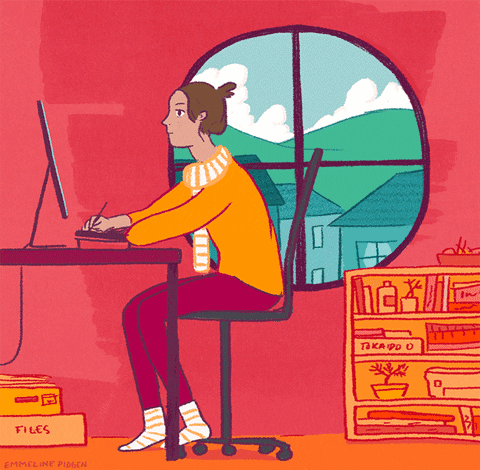
“It’s really hard to practice oral skills on your own and online. Luckily, they changed the exam by introducing pass or fail grades. For me, knowing that no grades are involved removes a lot of the pressure. However, we have formed online groups where we practice oral skills together, which is good. But it’s not the same as being in China,” she says.
Ida Carolin Söderholm is generally satisfied with the quality of the online teaching, but she misses going to classes, and feels that distinguishing between work time and leisure time was much easier before.
“I don’t mind sitting alone studying, and for the most part it’s working just fine. However, the face-to-face lecturers are more efficient when it comes to asking questions, I think. And I also find it a little hard to distinguish between work time and free time when you are just at home. But that’s more about discipline,” she says.
Laura Pilmark also explains that she still feels under a lot of pressure, though much of the pressure has been removed.
“When you are home all the time and your homework is just lying around, you feel like you have to constantly get on with it. As a result, I’ve done much more of my homework, and I feel like I’m catching up in many areas and spending more time on assignments. But that’s only possible because my range of other activities has decreased,” she says.
A big push forward
Just like Henrik Johannsen Duus, Teaching and Learning’s Executive Director Jakob Ravn expects students and teachers to take up online teaching much more than before the coronavirus crisis. His unit in particular, and in collaboration with CBS IT, has been part of orchestrating the turnaround that faced many CBS teachers after March 11.
“It’s been a steep learning curve for a high percentage of teachers, no doubt, but I think this situation has broken down some teachers’ barriers concerning online teaching. Now, they know about the tools, and some have learned to master them and provide great teaching in that way too,” he says and continues:
“So I’m sure we’ll see CBS’ ambition to have more blended teaching getting a boost, and we’ll see more teachers using the online tools – also after we return to campus.”
Right now, Teaching and Learning is teaming up with researchers from the Department of Digitalization, the Department of Economics, and the Department of Management, Society and Communication to gather log-data and evaluations from teachers and students until the end of the semester in order to better understand what works efficiently, what falls short and why.
“Hopefully, we’ll have some of the first results this fall. And we must incorporate the insight as fast as possible,” he says.
As for teaching in the fall semester, it is expected that at least some of the teaching can take place on campus again. But it will still be necessary to reduce the number of students on campus and keep greater distance between them. Therefore, minimum 50 % of the teaching needs to take place online and with a maximum of 100 students taught at the same time on campus. Many CBS teachers who had no courses to teach this spring are facing a challenge after the summer break, explains Jakob Ravn.
“The study boards and the teachers has started to look into teaching methods and how to organize courses in the fall. During this, we’ll need to draw from the experiences from this spring,” he says.





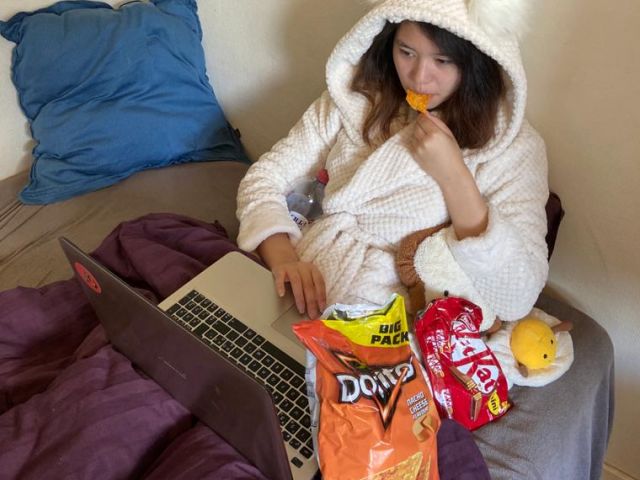
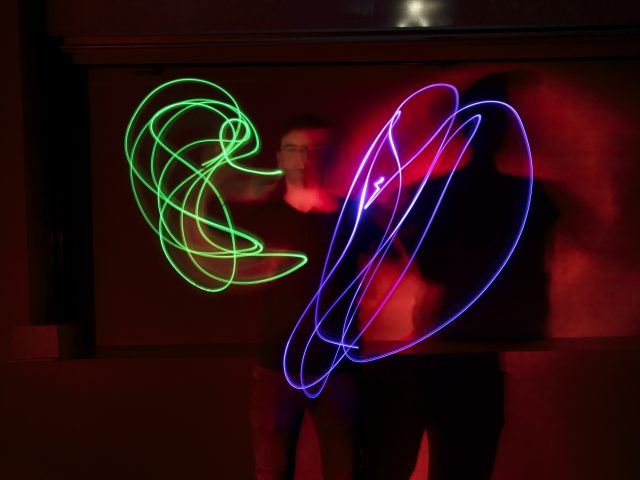


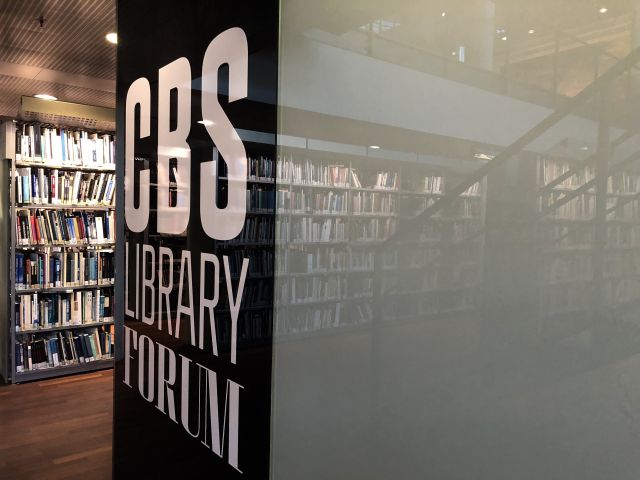

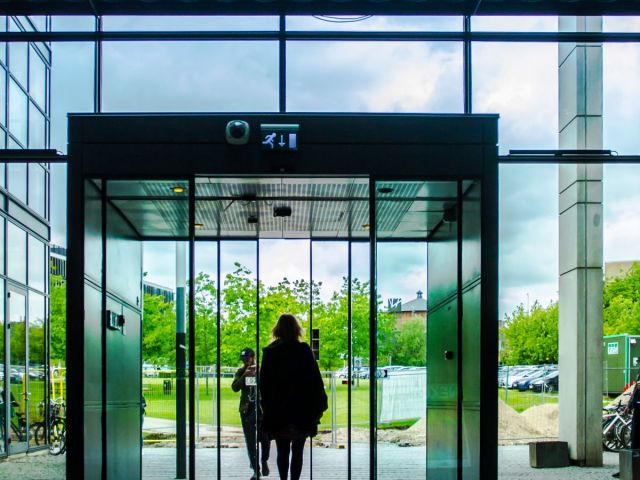




























































































































I am looking forward to the time, when “we” in our educational practice (and research of this pracice) move from Corona “Emergency Remote TEACHING” to informed and reflective Online / Blended LEARNING and have pedagogy first and EDUTech secondly for the sake of understanding the co-production (teacher / supervisor, adviser etc. – student / supervisee / LEARNER of learning situations (lectures, exercises, grop work, problem- based & participant managed project work …). Or said in a nutshell, how to come closer to the “Nordic Nine” competencies “our” students should have the chance to acquire and contribute with to their own development, organizations, and society – as described in the education part of CBS’s new Strategy (under construction). And take our learnings from (and not only behavior during) the until now rather sucessful muddling through (both students and teachers) to the next level.